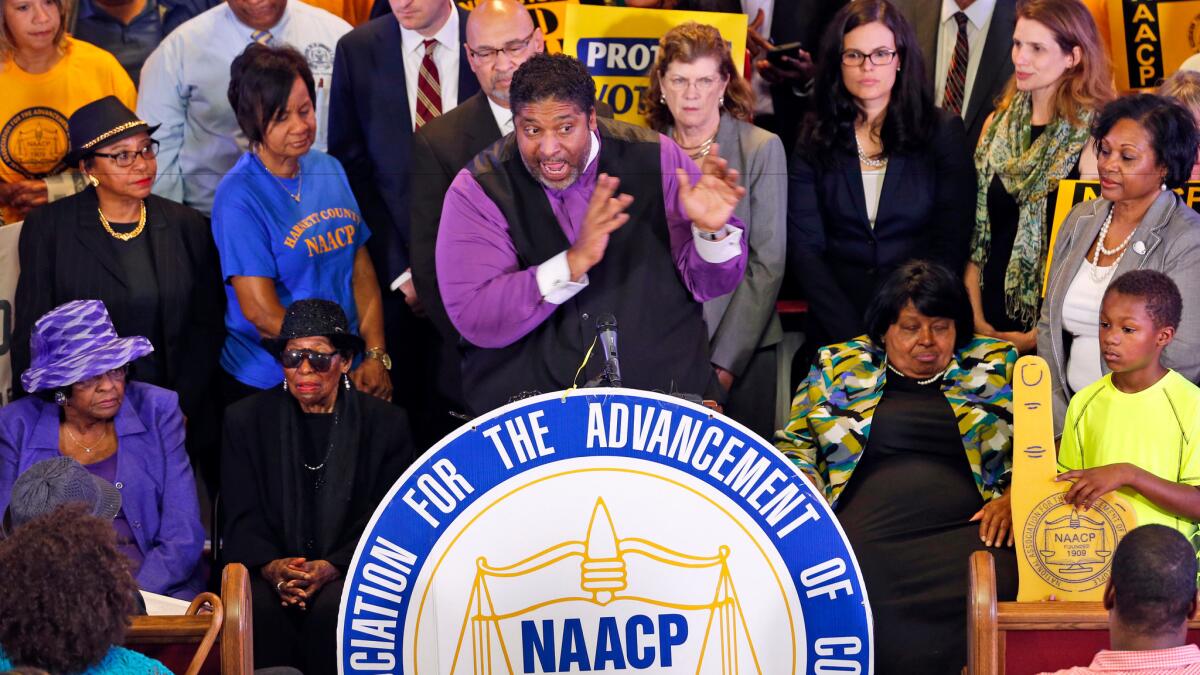Voter beware: Thanks to ID laws, being registered isn’t enough to vote in many states

- Share via
To the editor: Carol Anderson’s essay on the perverse effects of Republican voter suppression laws is well researched and terribly discouraging. (“The Democrats’ demographic firewall is under attack,” Opinion, July 17)
We hear the Republican mantra of preserving “democracy” in the U.S. and throughout the world; yet they disenfranchise literally hundreds of thousands of young, poor and minority voters in Texas, Alabama and so many other states purely for their political advantage.
This comes at the same time as Ruth Bader Ginsburg is chastised by presumptive Republican presidential nominee Donald Trump for her “too political” remarks from a Supreme Court justice who is supposed to be non-political. And yet all the Republican voter suppression laws are founded on the five conservative justices’ overturning of the Voting Rights Act enforcement because, they asserted, the law no longer “speaks to current conditions.”
So much for the court being non-political and for the Republicans’ hypocritical trumpeting (pun intended) of democratic ideals.
Ken Goldman, Beverly Hills
..
To the editor: There’s so much confusion about voter ID laws that poll workers in states without such laws, including California, ask for an ID. Furthermore, many people don’t understand that voter registration and voter ID are different, separate requirements.
The reality: It’s not enough to register to vote in the 33 states that have a voter ID law. Voters at risk are primarily those without a current driver’s license in their state: both older and younger adults, voters with disabilities (57 million Americans), voters of color or low income and women who have changed their names.
My group — a nonpartisan, nonprofit organization — focuses on helping voters with the identification they need to vote in their state. Not only do millions of voters lack valid voter ID, but our experience also corroborates a 2015 Rice University and University of Houston study, which showed than in 2014, as much as 9% of registered voters of one congressional district in Texas did not vote because of confusion about that state’s ID law.
Kathleen Unger, Santa Monica
The writer is president and chief executive of VoteRiders.
Follow the Opinion section on Twitter @latimesopinion and Facebook
More to Read
A cure for the common opinion
Get thought-provoking perspectives with our weekly newsletter.
You may occasionally receive promotional content from the Los Angeles Times.










